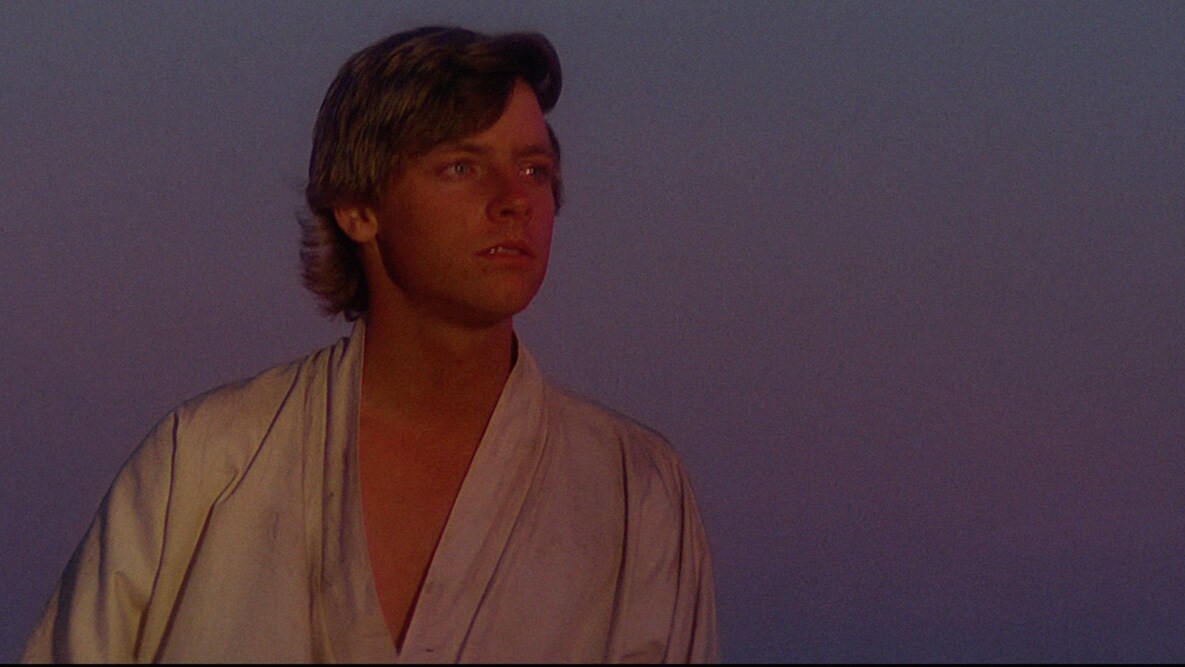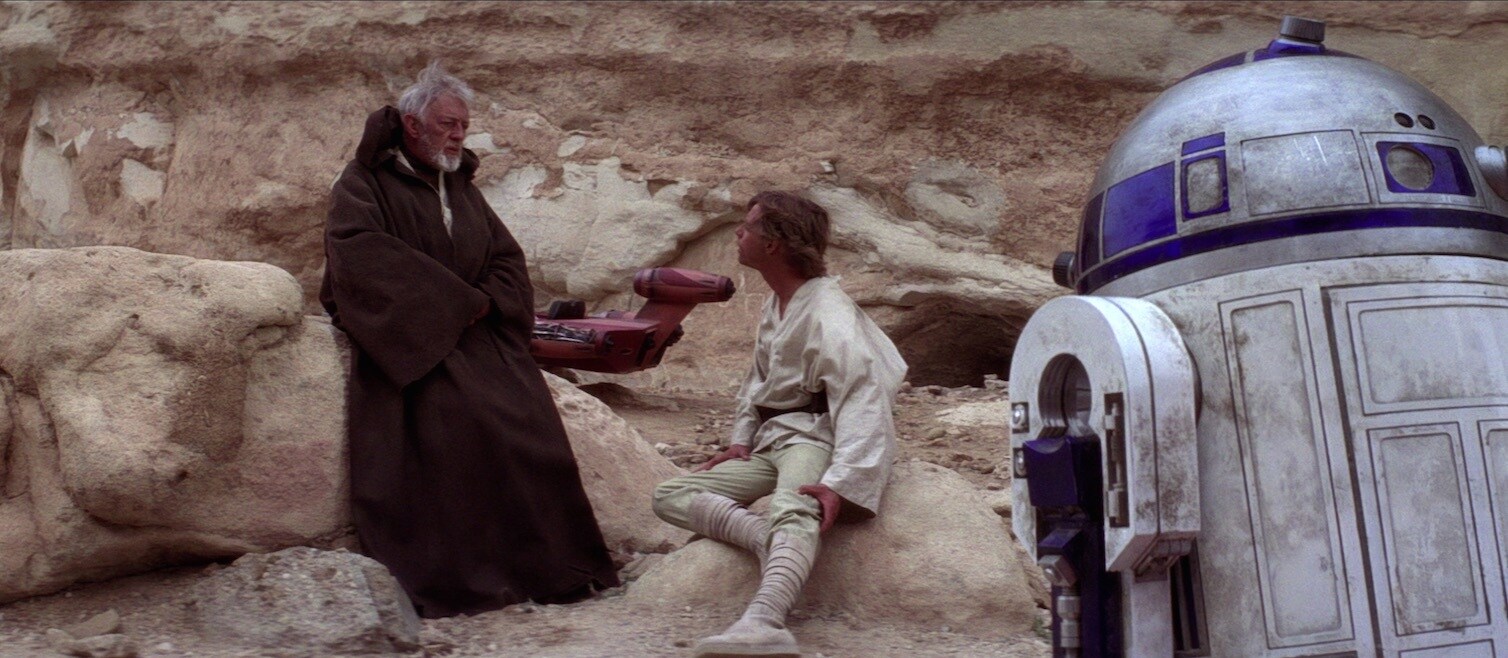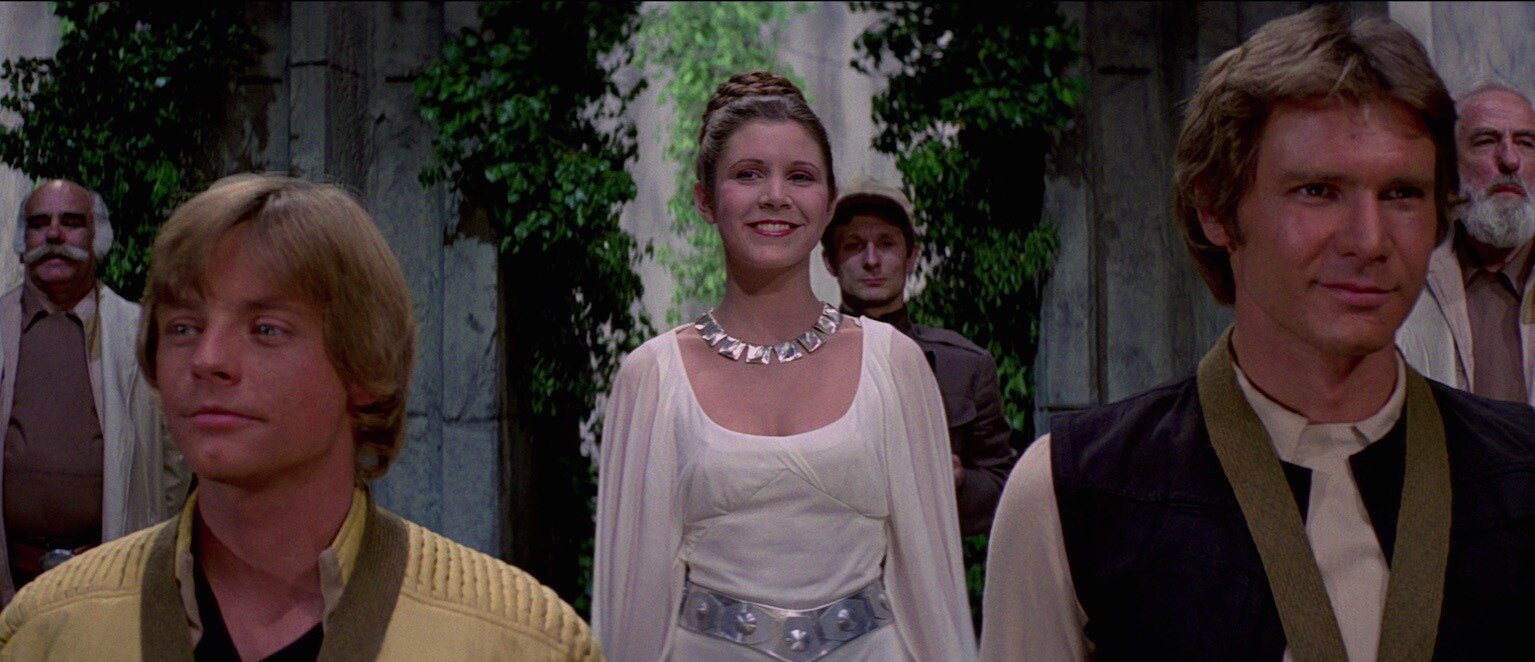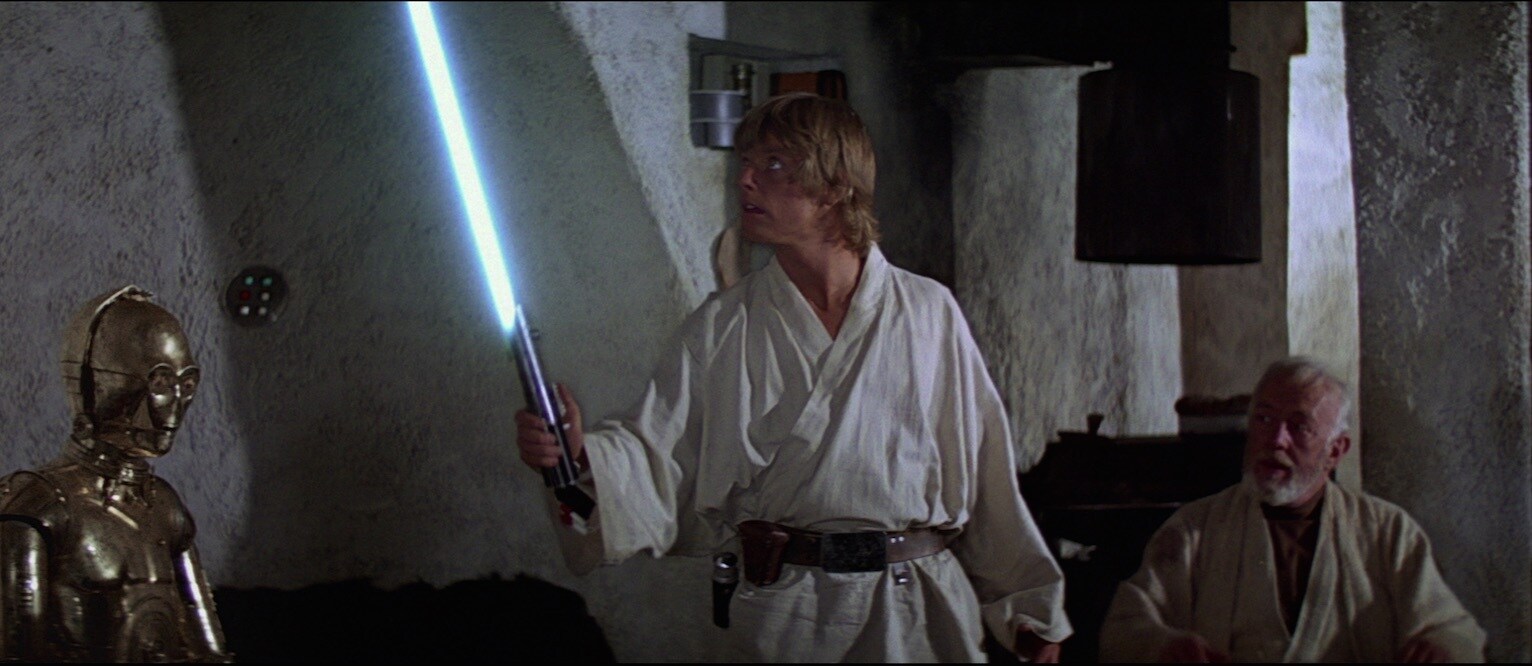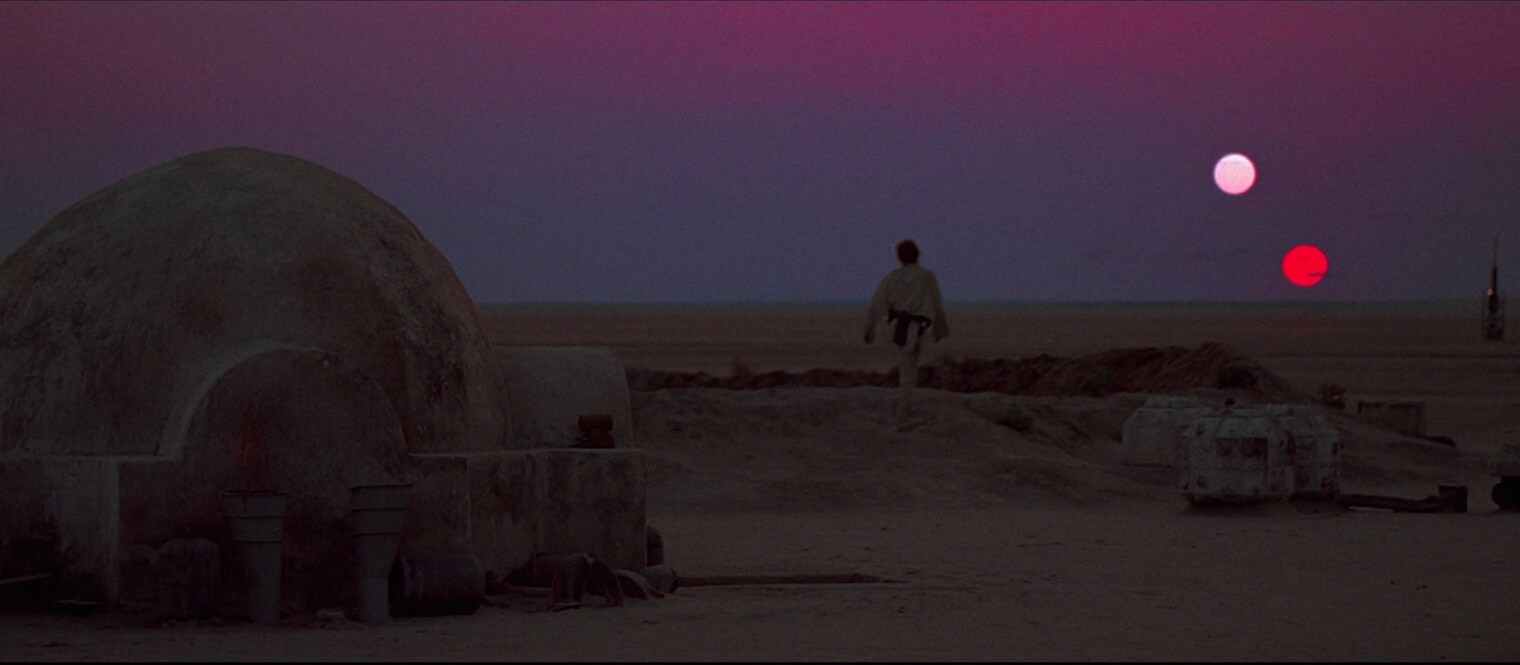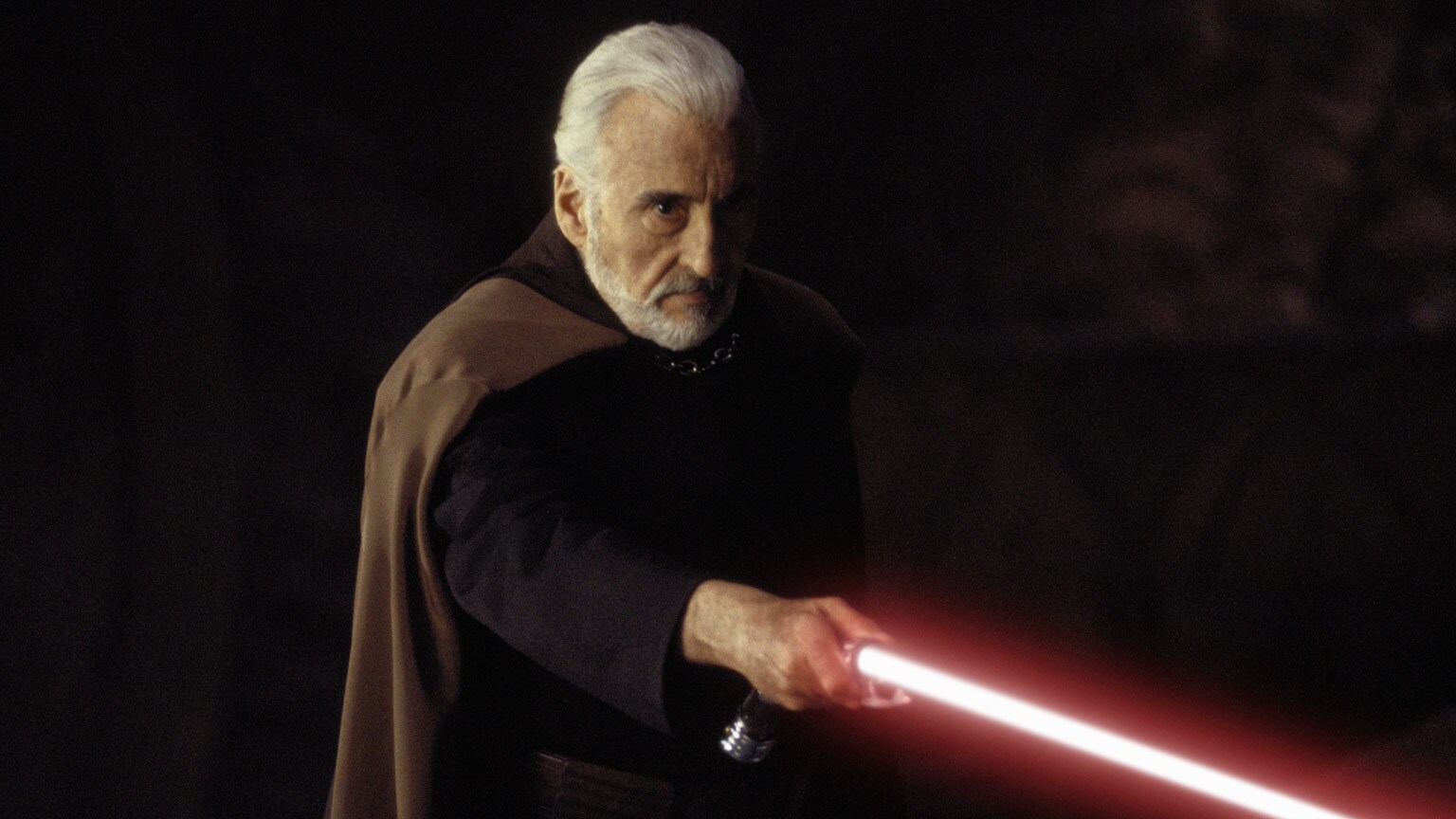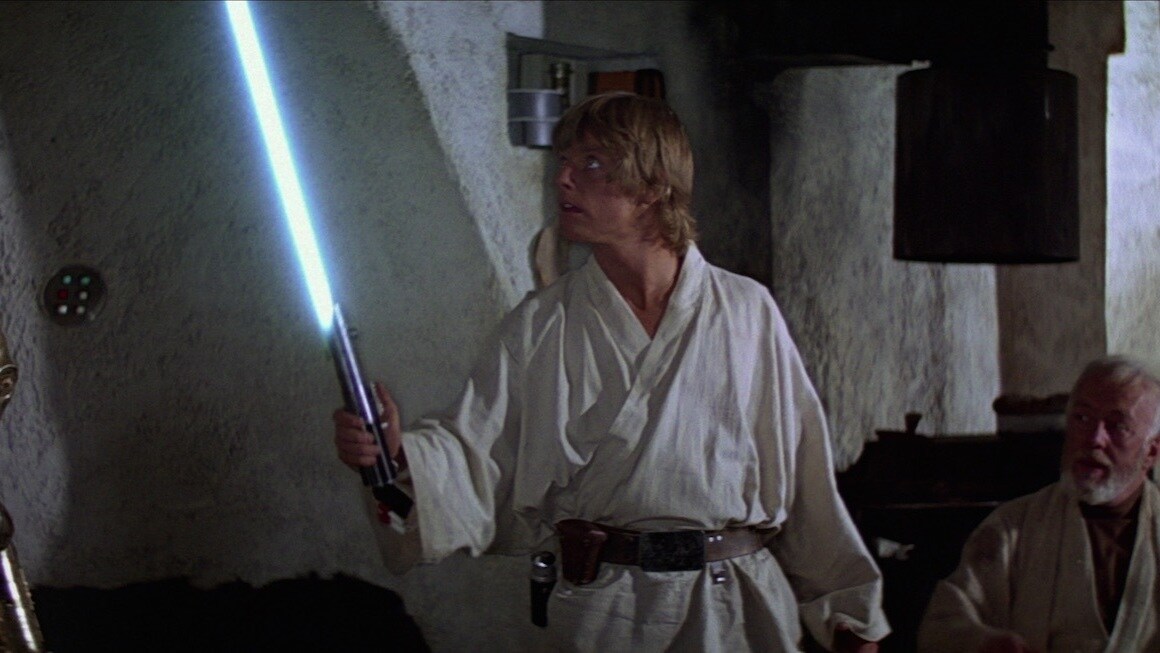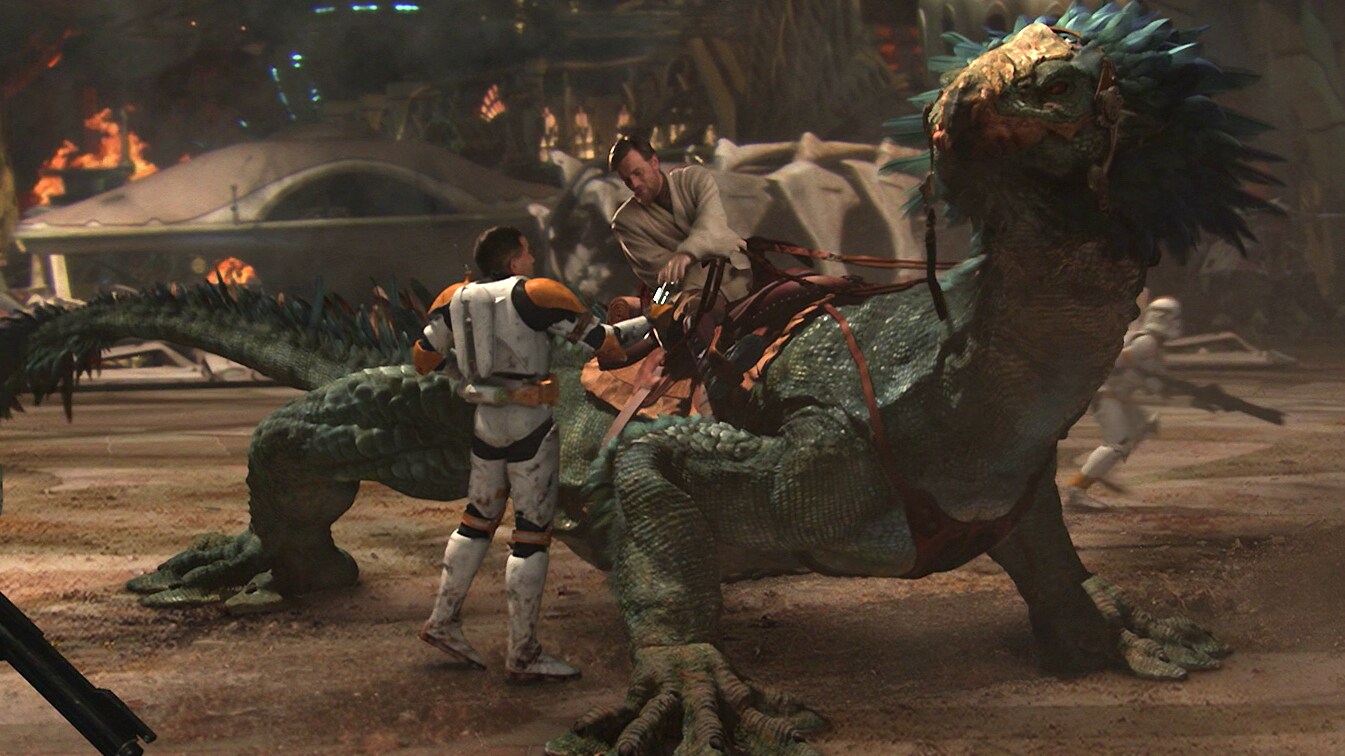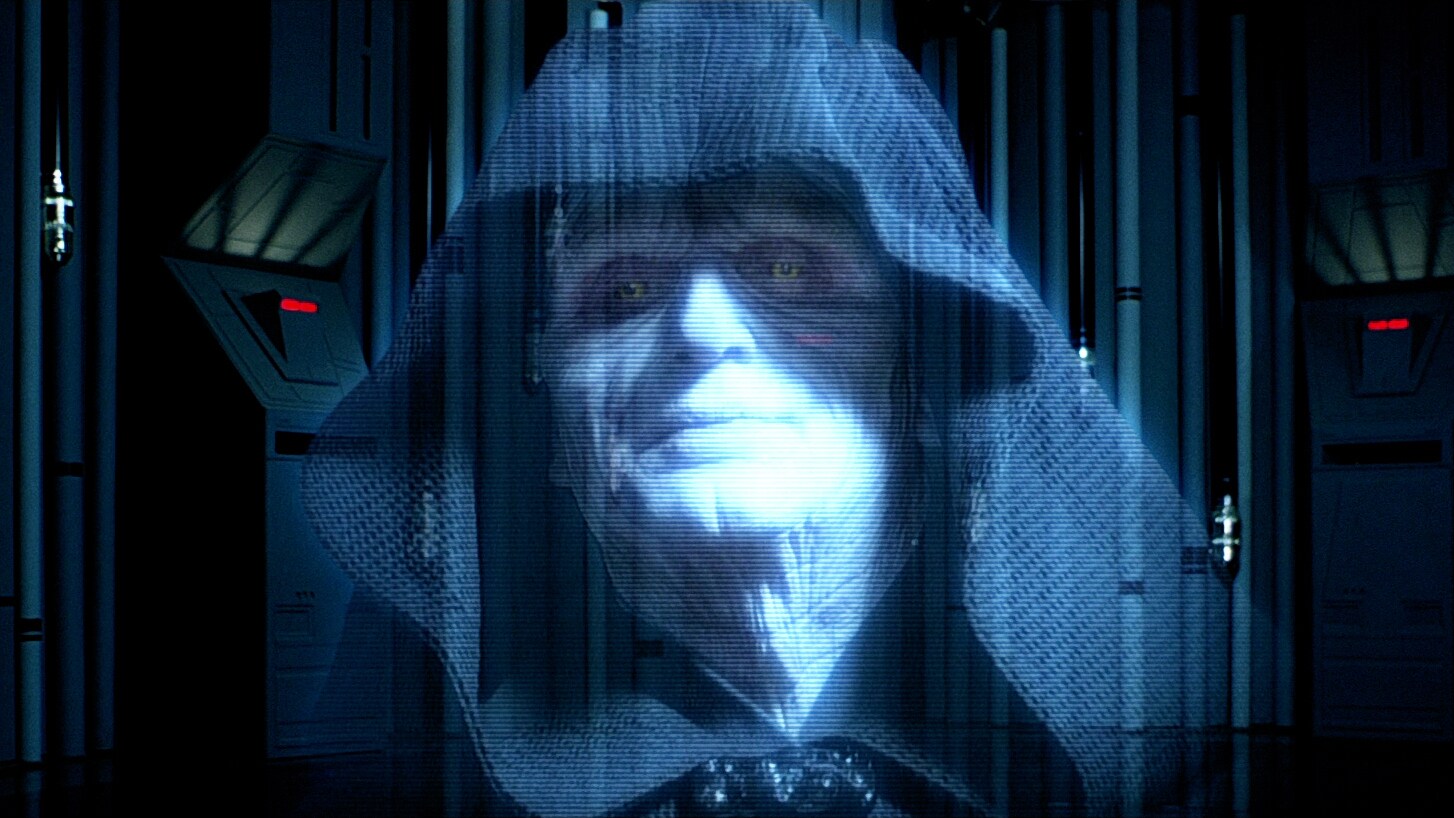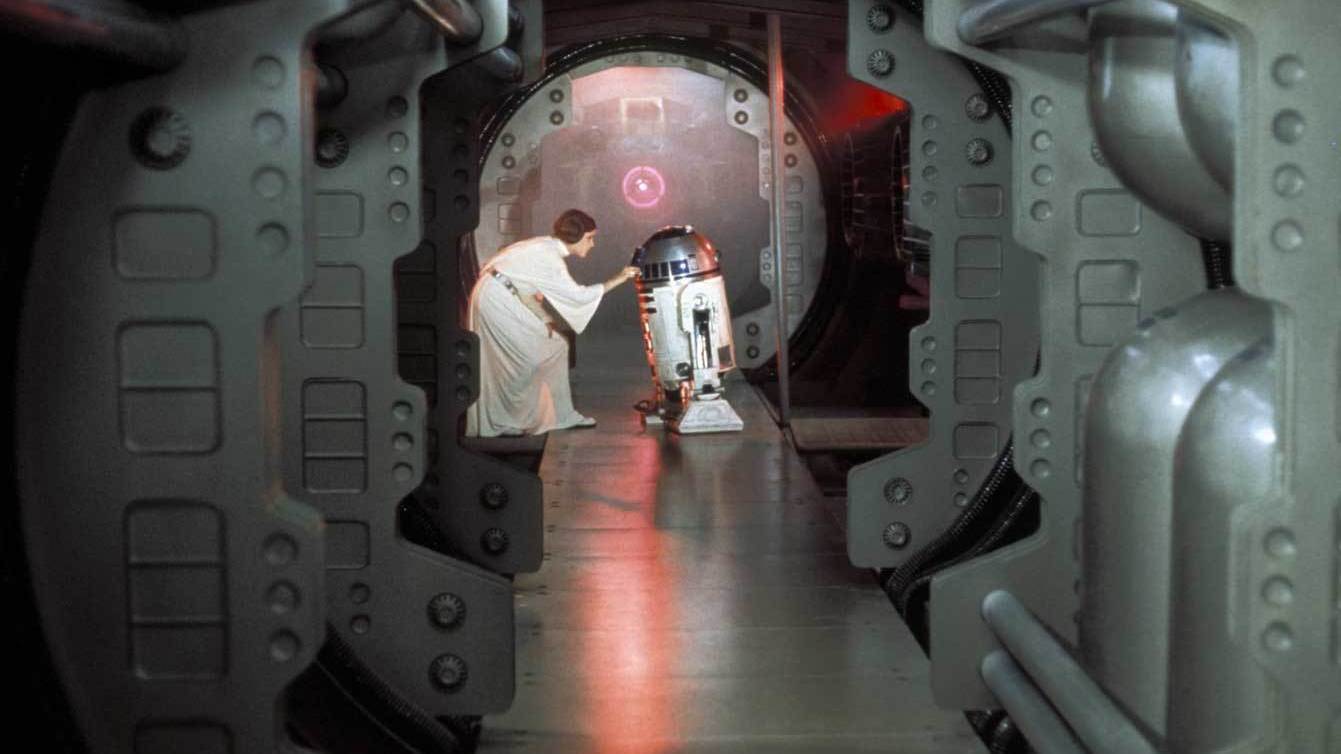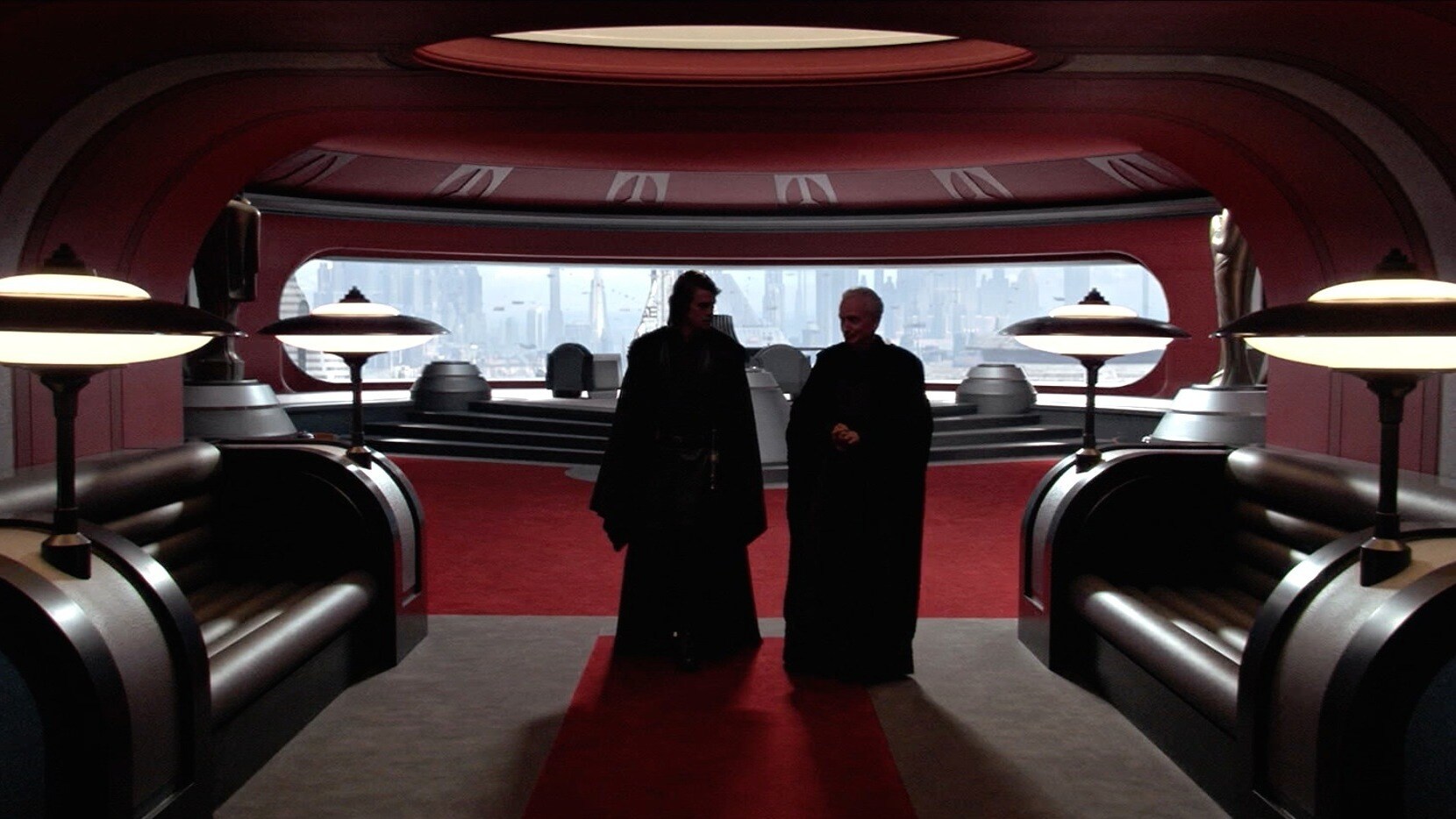Studying Skywalkers is an exclusive column that investigates the characters, themes, and lessons of Star Wars from an educational, literary perspective. In this installment, StarWars.com looks at themes in Star Wars: A New Hope.
Star Wars.com continues to look at themes present in the six existing Star Wars films as we get closer to Star Wars: The Force Awakens. Each of these films helps to perpetuate our understanding of each character, as well as to further our examination of the cultural imperatives present in these beloved movies. The prequels brought us deeper into the world of Anakin Skywalker, the Jedi Order, and the fall of the Republic. However, the legacy of Star Wars began with the original trilogy, and the uprising of the Rebellion. Featuring the heroics of Luke Skywalker, Princess Leia, and Han Solo, the original trilogy left a legacy that continues to enthrall, entertain, and inspire us. A closer look at Star Wars: A New Hope reveals themes that demonstrate how relevant the 1977 masterpiece remains, and helps collective audiences embrace how fresh this story still is today.
Respect for elders
Star Wars established the well known galaxy far, far away, and inspires us for many reasons: chief among them, however, are the memorable characters, particularly the elder statesmen of the film. The film reinforces the cultural paradigm of the wise elder. Obi-Wan Kenobi is the clearest example. His mentorship of Luke Skywalker is the catalyst that leads the burgeoning hero to his destiny with the Rebellion, and eventually, the ways of a Jedi.
Not to be outdone, however, is the curmudgeonly Owen Lars. The uncle of Luke Skywalker appears to repress Luke, and keep his dreams restrained. While his manner can be difficult for his nephew to embrace, the matter is paramount to Luke’s safety. Uncle Owen raises Luke to be a self-reliant young man, and while Luke may not always agree, his respect of an elder authority figure reflects his character, as well as the wisdom of Owen Lars.
Even the Empire features the wisdom of an elder, albeit in an unconventional sense. Grand Moff Tarkin is the oldest member of the Empire seen in Star Wars, and he is clearly respected. In fact, he is the only member of the Empire that Darth Vader not only respects, but listens to, and takes commands from without fail. Undoubtedly, the remaining members of the fleet take note of this; Tarkin’s reputation has come to light more recently in James Luceno’s novel, but his wisdom, as well as the respect the Empire has for him, as seen in Star Wars, is not to be taken lightly.
People of different backgrounds can work together to produce great results
Another important theme in Star Wars is the power of coming together to realize a common goal. History provides many examples of individuals and factions from different geographic backgrounds and diverse ideologies embracing differences to unite against a common foe. In A New Hope, this is made manifest in the form of Princess Leia Organa, Han Solo, and Luke Skywalker. The princess, the scoundrel, and the farmboy all have different histories, but the same destiny: to unite against the Empire, and become more as a whole than they were as single entities. This is also evident in the presentation of the Rebellion. In difficult times of war, oppression, and wrongdoing, Star Wars reinforces the power of difference, and the benefits of working together to manifest a better tomorrow.
The positive aspects of not relying too much on technology
In yet another memorable scene, Luke is training with a remote on the Millennium Falcon, while Han Solo watches in bemused self-righteousness. He famously informs Luke and Ben Kenobi that “hokey religions and ancient weapons are no match for a good blaster at your side.” To audiences, a lightsaber seems far from ancient, but it appears that to Han Solo, the weapon is out of date, and his technology (via a blaster) is the way to go. Ben ignores Solo’s snark, and Luke learns that sometimes the old ways are better.
This is much more pertinent during the penultimate chapter of A New Hope; Luke Skywalker is called to from the beyond by Obi-Wan to “use the Force” and to “let go.” While at first caught off guard, Luke realizes that he must turn off his targeting computer (which, as shown previously by Red Leader, was no guarantee of a direct hit into the Death Star's exhaust port) in order to save the moon of Yavin from seemly imminent destruction. Luke decides not to rely on technology, and to trust his instinct, as well as his increasing Force abilities. He engages in the Force, and shuts off the device. He did not need technology to achieve his goal, and sets about a major shift in the sway of the war against the Empire.
The importance of hope and believing in what you can't see
When Luke Skywalker longs for change in his life, and gazes into the twin suns of Tatooine, the audience is presented with a powerful theme: we must have hope. The future Jedi senses there is more to life, and that just beyond what is known is something greater. The scene is a favorite amongst Star Wars fans, and for good reason. Having hope, and trusting that there is something to believe in that can not be seen with the five senses inspires optimism, creativity, and hope. It is no wonder this moment has captivated so many generations of moviegoers.
The example above involving Luke Skywalker’s epic trench run in the Death Star also reinforces believing in what one cannot be seen. Luke chooses to believe in the Force; it may give the Jedi his power, but at this particular moment, Luke can see nothing more than the trenches racing by, and the real threat of Darth Vader’s TIE speeding towards him. He puts his faith in something greater that is not in his line of vision, and vanquishes the Death Star. He has hope, as well as faith, and comes out more powerful than he could possibly imagine.
What other themes in A New Hope have you noticed in your many viewings? Let us know in the comments below, and be on the lookout for the next installment, themes in Star Wars: The Empire Strikes Back.
Dan Zehr is a high school English teacher with an MS in Teaching and Learning, and runs Coffee With Kenobi (with co-host Cory Clubb), a Star Wars podcast that analyzes the saga through critical thinking, analysis, interviews, and discussion. He is also a member of the Rogues (as Blue Leader), a network of teachers that incorporate Star Wars in the Classroom.




